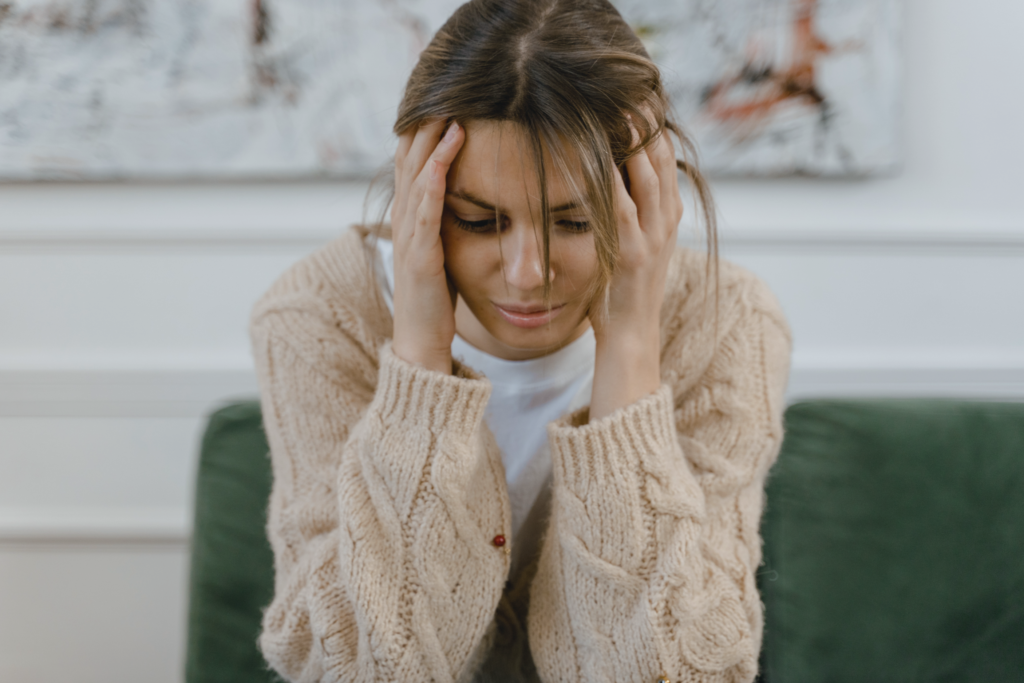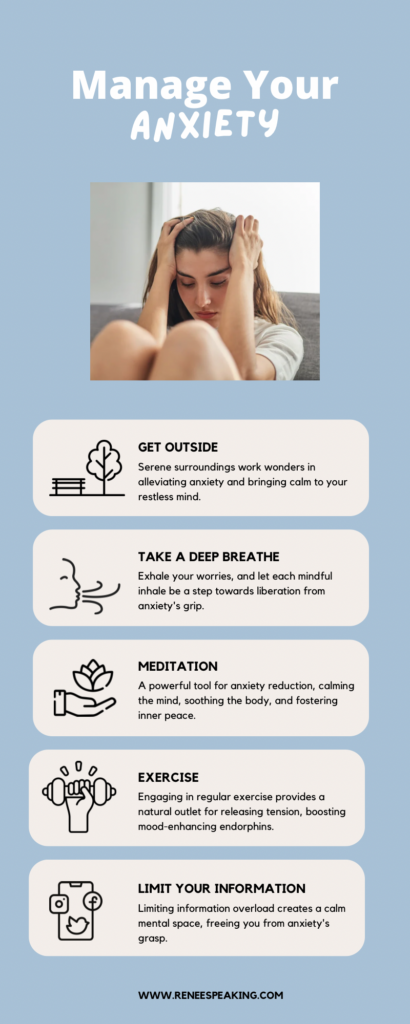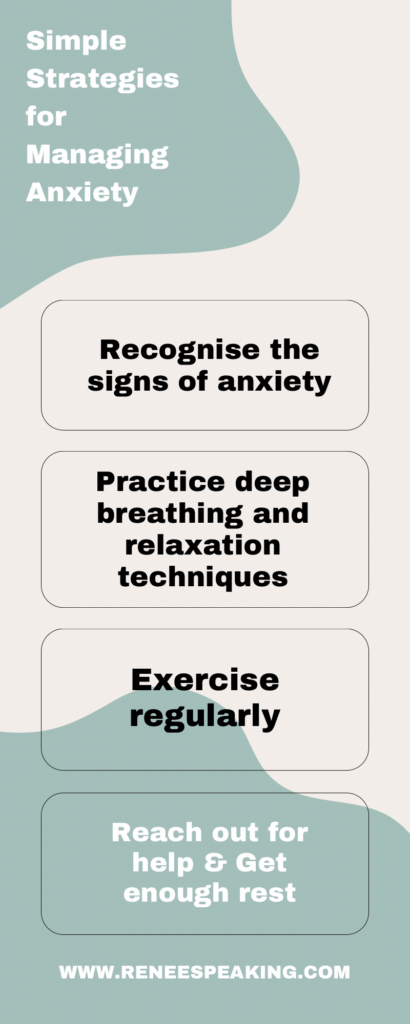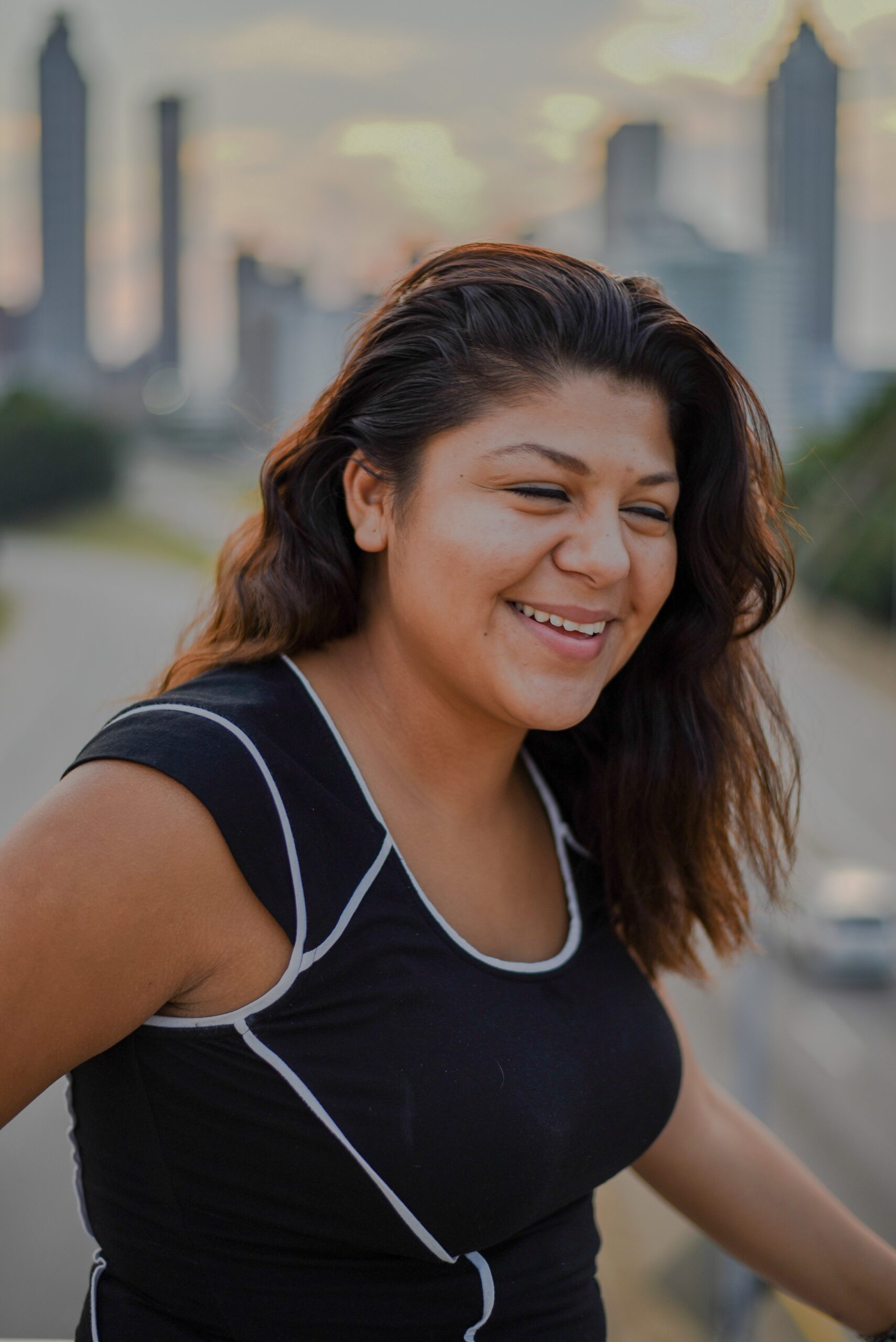This post is about Anxiety Symptoms.
This post may contain affiliate links, which means I’ll receive a commission if you purchase through my link at no extra cost. Please read the full disclosure here.
Anxiety can have a significant impact on your everyday life. It can be debilitating, stop you in your tracks and prevent you from living a full life. Knowing the symptoms of anxiety is the first step towards healing from it.
Being able to acknowledge the condition and then doing something about it is such a brave thing to do.
When we take this big step to get well from anxiety, we start to see that life is worth living and there is hope for anxiety sufferers.
In this post you will learn about anxiety symptoms, how it affects you physically and emotionally, and find practical solutions to manage it effectively.
Anxiety Symptoms
1. What are the Signs and Symptoms of Anxiety?

Anxiety symptoms can be different for everyone. There are however common symptoms that nearly every anxiety sufferer has.
Here are some key signs to be aware of:
- Increased heart rate and palpitations
- Shortness of breath and rapid breathing
- Muscle tension and headaches
- Stomachaches or digestive issues
- Sweating and trembling
- Feelings of restlessness or being on edge
- Excessive worry and fear
- Irritability and mood swings
- Difficulty concentrating
- Sleep disturbances
To get help with your anxiety today, speak with a licensed psychologist here.
2. How Anxiety Affects Your Body and Mind.

Anxiety unfortunately has a significant impact on both our physical body and our mind.
“Anxiety is love’s greatest killer. It makes others feel as you might when a drowning man holds on to you.”
Anaïs Nin
When we learn how it affects our body, we can then know how to handle anxiety attacks better.
Here’s a closer look at its effects:
Physical Impact:
- Anxiety activates the body’s stress response, releasing stress hormones that can lead to long-term health issues.
- It can contribute to high blood pressure, weaken the immune system, and increase the risk of cardiovascular diseases. Chronic anxiety can also cause tension headaches, muscle pain, and digestive problems.
Emotional and Mental Impact:
- Anxiety can significantly impact your emotional and mental state. It may lead to chronic stress, depression, and other mental health conditions if left untreated.
- Anxiety can interfere with daily activities, relationships, and overall quality of life. Recognising the emotional toll of anxiety is essential for seeking appropriate support and intervention.
Anxiety Tip: Anxiety can be scary when it interferes with our everyday life. To help heal from anxiety and be free from the constant symptoms take a moment today to journal. Just 5 minutes of journalling a day can help you ground your thoughts. You get them out of your head and onto paper. This means that you free up valuable room in your mind to take on the challenges of today.
3. Practical Strategies for Managing Anxiety

Overcoming anxiety is a journey. Sometimes you may be better at dealing with the symptoms and other days you feel like just curling up in a ball and not leaving the house.
“Anxiety’s like a rocking chair. It gives you something to do, but it doesn’t get you very far.”
Jodi Picoult
Don’t be disheartened if you feel you’re not fixing your anxiety. It’s a long process and one that takes time and dedication.
Your anxiety doesn’t have to stop you from living, in fact when we learn how to mage it, we can even use it to our advantage.

To get a handle on your anxiety, it requires patience, self-awareness, and effective coping strategies.
Here are some practical solutions to help you manage anxiety:
- Deep Breathing and Relaxation Techniques: Practice deep breathing exercises and relaxation techniques like meditation, mindfulness, or yoga. These techniques can help calm the mind and relax the body, reducing anxiety symptoms.
- Regular Exercise: Engaging in regular physical activity releases endorphins, the brain’s “feel-good” chemicals, which can alleviate anxiety symptoms. Aim for at least 30 minutes of moderate exercise daily, such as walking, jogging, or dancing.
- Seek Support and Professional Help: Don’t hesitate to seek support from friends, family, or mental health professionals. They can provide guidance, understanding, and effective treatment options tailored to your needs. You can get online therapy without having to leave your home. Find out more here.
For further information on managing anxiety, consider these helpful resources:
- Mayo Clinic – Anxiety is Disorders
- National Institute of Mental Health – Anxiety Disorders
- Anxiety and Depression Association of America – Understanding Anxiety
Final Thoughts

By recognising the signs, seeking support, and implementing practical strategies, you can overcome anxiety and improve your overall mental health.
Understanding anxiety symptoms and their impact on your body and mind is the first step towards effectively managing anxiety.
Remember, you’re not alone, and resources are available to help you on your journey towards greater well-being.

By taking small steps each day and prioritising your mental health, you can find the balance, resilience, and self-improvement you desire.
Embrace the power within you to manage anxiety, develop practical strategies, and foster personal growth.
This post was about Anxiety Symptoms.


